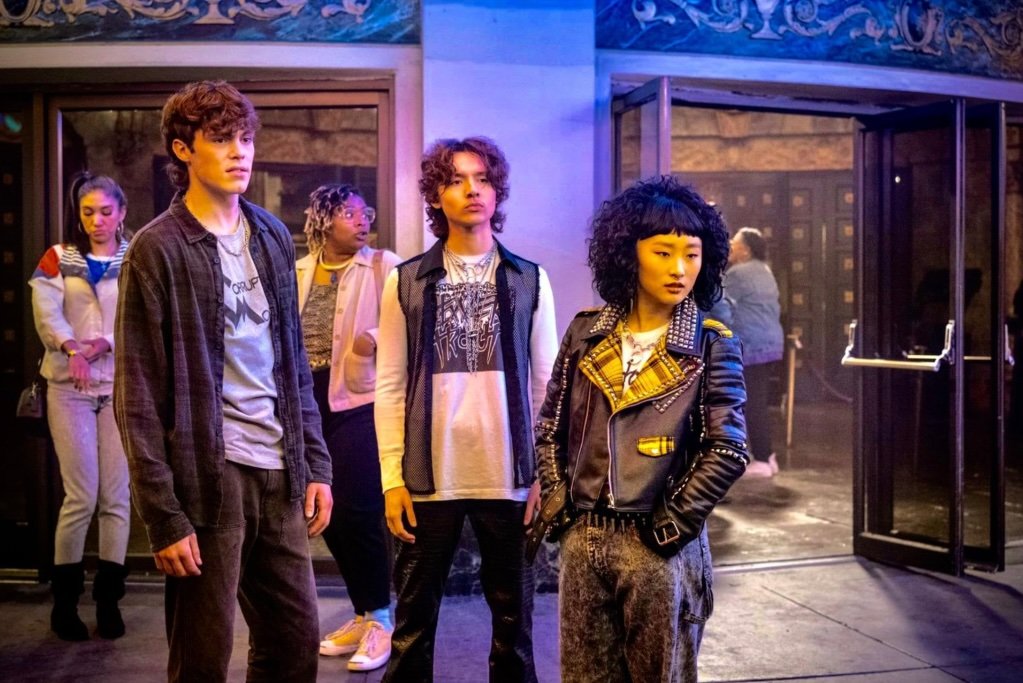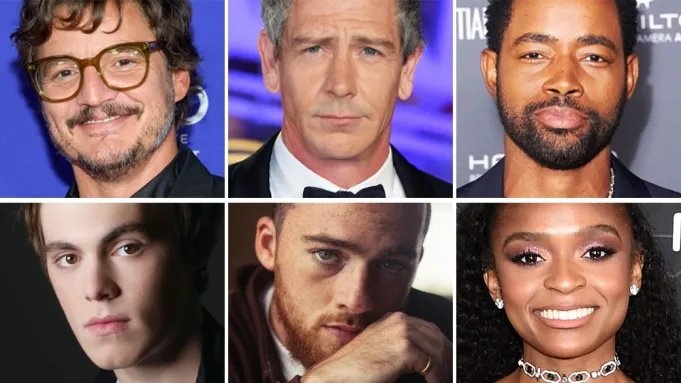Set in the vibrant yet gritty landscape of 1987 Oakland, Freaky Tales is an anthology film that blends nostalgia, chaos, and urban folklore into a genre-bending experience. Directed by Anna Boden and Ryan Fleck, the film delivers four interconnected narratives—teen punks defending their turf against Nazi skinheads, a rap duo fighting for hip-hop immortality, a weary henchman on a quest for redemption, and an NBA All-Star seeking retribution. With its eclectic mix of action, humor, and heart, the film is as much a love letter to the Bay Area as it is a cinematic mixtape of underdog stories.
The film kicks off with a unique opening segment, featuring a VHS filter and cigarette burns in the corner—a nod to old-school projectionist techniques. It even acknowledges the projectionist’s struggle with reel changes, setting a playful and self-aware tone. The use of varying aspect ratios throughout the film adds an experimental edge, further enhancing the visual storytelling.
Musically, Freaky Tales is a masterclass in setting the mood, capturing the essence of the late ’80s with a soundtrack that perfectly complements each chapter. The inclusion of Metallica’s "For Whom the Bell Tolls" in a pivotal moment is particularly electrifying, standing out as one of the film’s most memorable sequences. The grand finale, underscored by Public Image Ltd., ties everything together with an extra dose of punk energy.
The film boasts an ensemble cast that elevates its pulpy, over-the-top premise. Pedro Pascal delivers yet another standout performance, reinforcing his reputation as one of Hollywood’s finest. His scene with Tom Hanks, who plays a movie buff working at a video store, is one of the film’s most engaging moments, featuring sharp dialogue and unexpected turns. Ben Mendelsohn, as always, is a scene-stealer, while the late Angus Cloud leaves a lasting impression in one of his final roles. Jay Ellis, Normani, Dominique Thorne, and Jack Champion round out the ensemble, each bringing a unique energy to their respective characters.
Structurally, the anthology format is both a strength and a weakness. While two of the stories shine with compelling narratives and dynamic execution, the other two feel slightly underwhelming. The film wears its influences on its sleeve, drawing from Pulp Fiction, Scott Pilgrim vs. The World, The Warriors, and even Kill Bill, yet at times, it struggles to fully realize its own distinct style. Some homages land perfectly, while others feel like they’re reaching for a level of impact they don’t quite achieve.
Despite these minor inconsistencies, Freaky Tales is a wildly entertaining ride that embraces its campy, cult-classic potential. The film’s deep-rooted appreciation for the Bay Area shines through in its meticulous attention to detail, from references to Op Ivy concerts to Too $hort rap battles and even a nod to Golden State Warriors legend Sleepy Floyd in a vengeful samurai storyline.
With its kinetic energy, genre-blending ambition, and stellar performances, Freaky Tales is a film that thrives on its passion for storytelling. It may not be flawless, but it delivers a unique and exhilarating experience that’s bound to find a dedicated audience. If Once Upon a Time in Hollywood reimagined Tinseltown through Tarantino’s lens, Freaky Tales does the same for Oakland—only with a punk-rock, hip-hop, kung-fu twist.
Jessie Hobson





